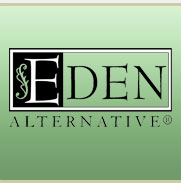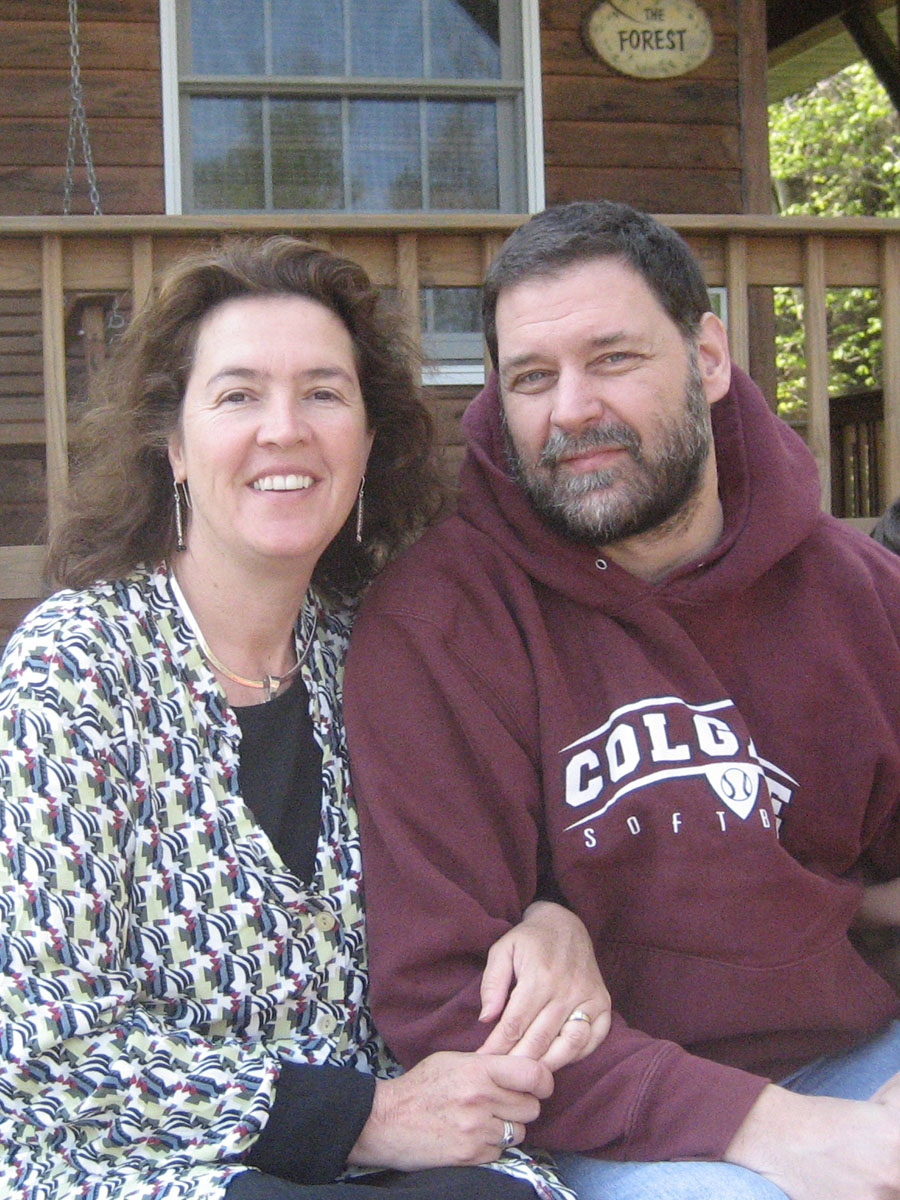 Today we talk with Dr. William Thomas, a Harvard-educated physician, board-certified geriatrician, author of Tribes of Eden and founder of The Eden Alternative, a program that seeks to remake the experience of aging around the world. After years of working in long-term care facilities, Dr. Thomas founded The Eden Alternative to teach that where elders live must be habitats for human beings, not sterile medical institutions. He, his wife Judy, the Eden home office staff, 50 Eden Educators, 60 mentors and more than 15,000 associates in homes around the world are dedicated to eliminating the plagues of loneliness, helplessness, and boredom that make life intolerable in most of today’s long-term care facilities.
Today we talk with Dr. William Thomas, a Harvard-educated physician, board-certified geriatrician, author of Tribes of Eden and founder of The Eden Alternative, a program that seeks to remake the experience of aging around the world. After years of working in long-term care facilities, Dr. Thomas founded The Eden Alternative to teach that where elders live must be habitats for human beings, not sterile medical institutions. He, his wife Judy, the Eden home office staff, 50 Eden Educators, 60 mentors and more than 15,000 associates in homes around the world are dedicated to eliminating the plagues of loneliness, helplessness, and boredom that make life intolerable in most of today’s long-term care facilities.
Dana: Let’s begin by defining “aging”. What does the word mean for you?
Dr. Thomas: It’s important to undersatnd that for human beings the biological processes we understand as aging actually begins in our late twenties. We often think of it as assigned only to older people, but in reality only those in their mid-twenties and below are not aging. The great majority of people in our society are actually “aging”.
Dana: As far as elder care and what we traditionally consider aging – how is that different?
Dr. Thomas: It’s not that different. People enter points throughout their lives where they rely on others for health and well-being. It isn’t uniuqe to old age, it’s very common. For example, a woman who gives birth to a child often receives post-natal caregiving from loved ones. Human beings are set up and designed to be able to flex to meet each other’s needs. I don’t segregate aging or elder care as something different.

Bill and Jude Thomas
Dana: Why do you think “loneliness, helplessness, and boredom” have become associated with elder care specifically? Why do younger people not face those challenges when they need care?
Dr. Thomas: Because we’ve categorized the needs of older people as being distinct from the needs of everybody else. We’ve created a dangerous assumption among older people that relying on others is a sign of weakness, that older people must protect independence by refusing the kind of assistance that would be very good for them.
Alternatively, cultural norms allow a young mother to graciously receive assistance. We don’t have the same kind of cultural norms for elders to receive care. Instead, an older person who needs care is highly stigmatized.
Dana: A recent headline on your blog read, “We are living longer, sicker, happier lives.” Can you comment on what that means about aging in our society?
Dr. Thomas: Yes. Studies have shown if you ask a group of forty-year-olds and a group of seventy-year-olds, “How healthy are you?” the seventy-year-olds will in fact report more happiness and better health than the forty-year-olds. The fact, of course, is that people in their seventies actually have more medical conditions and chronic illnesses than people in their forties. But, what happens in healthy aging is people adapt to aging and create a new setting of what we consider “good health.”
Dana: Is that typical in our culture, or is it a result of a particularly healthy view on aging?
Dr. Thomas: If anything, our culutre undermines that idea. But people have an adaptive ability to actually experience good health.
Dana: So that view actually battles our cultural view of aging as decline?
Dr. Thomas: Yes. Our culture has a declinist vision of aging. It says aging equals decline. In the movement I’m part of, and what we’re doing at the Eden Alternative, is we say aging is a height of human development. Aging is growth.
Dana: How do you spread that idea?
Dr. Thomas: If you look at the language of The Eden Alternative, we shift the focus from decline to growth. The best metaphor we have in our culture for growth is a garden – therefore, you have Eden! We always say, “Life is better in a garden,” and that’s the kind of life we want to produce.
Dana: Can you give us a brief overview of The Eden Alternative program?
Dr. Thomas: The Eden Alternative is an alternative to standard conventional practice in nursing homes. The goal is to foster growth. When you walk into a place that has adopted the Eden Alternative philosophy, you’ll see a pretty intense focus to fostering growth.
Dana: Is that through specific programs? For example, what comes to mind when thinking about fostering growth in a school, which has specific programs to teach and foster growth in children?
Dr. Thomas: Yes. It’s an educational program to foster growth in existing nursing homes. We work with any organization that’s taking care of elders and help them do a better job.
Dana: Your background is in medicine, and you mentioned you worked in nursing homes for a lot of years. What were you seeing in the medical system that led you to develop The Eden Alternative?
Dr. Thomas: What I was seeing was way too much loneliness, helplessness, and boredom.
Dana: What did you see as the cause of that?
Dr. Thomas: It’s a result of being placed in an institution. If I put you in an institution, it would be the same – it’s not about elders. When we put prisoners into an institution, we know that they’ll suffer loneliness, helplessness, and boredom – it’s part of the punishment! When we institutionalize elder people, we expose them to those same things that are very harsh.
Dana: So you obviously believe there’s an alternative to that. How do you avoid those effects of being institutionalized?
Dr. Thomas: What we attempt to do is teach people to stop behaving like an institution and start behaving as if their job is to grow people. Institutions are very good at custodial care – feed, water, medicate, supervise. The problem is that’s not a life worth living. If you want a life worth living, you have to focus on growth. Growth is what gives meaning to life. The [traditional] focus on decline makes it very difficult to find meaning in life.

Dana: What do you do to instead focus on growth?
Dr. Thomas: Addressing loneliness, helplessness, and boredom up front. Rather than acknowledge these conditions as inevitable, we say they have to be taken care of. The second thing we focus on is we build relationships. The typical nursing home puts tasks in front of people. The Eden Alternative puts relationships before tasks.
Dana: What kind of relationships?
Dr. Thomas: Relationships between elders, between staff and elders, between elders and companion animals, between staff and companion animals, between elders and children, between elders and the community, etc.
Dana: What benefits have you seen for elders under the Eden Alternative?
Dr. Thomas: Improved health, reduced use of medications, improved function, and, most importantly, we see more happiness! The Eden Alternative is actually good at helping bring happiness to the lives of elders, and people who work in The Eden Alternative environment are also happier.
Dana: When you walk into an Eden Alternative facility, what will you see that’s different from what we can pretty much all picture as a typical nursing home environment?
Dr. Thomas: You’ll see more people talking to each other. You’ll see the presence of campanion animals, the presence of children, and plants. What you’d hear would be more language dedicated to growth and less emphasis on decline.
Dana: Along the lines of your Eden at Home program, which brings the principles of The Eden Alternative to home and community-based care, what can we do in the larger community to ensure quality of life and continued development for aging loved ones?
Dr. Thomas: The first thing is, become aware of how heavy a toll agism takes on all of us. How we accept ideas of aging that are just not true. The misunderstandings we have about aging lead to a great deal of suffering.
Dana: How do we combat those misunderstandings?
Dr. Thomas: Start by beginning to adopt age-positive language, expectations and behaviors.
Dana: Thank you, Dr. Thomas, for taking the time to talk with us and help us understand some of the misunderstandings we hold about aging in our society!
Learn more about The Eden Alternative at edenalt.org. If you’re interested in bringing The Eden Alternative to your facility, check out this presentation to share with the people around you to teach them about the issues you see and how the program can address them. Learn more about the novel, Tribes of Eden, a tale set in a world where elders are valued for their experience and woven into the fabric of everyday life, at the book’s website.
Read more about aging at SevenPonds:
Images courtesy of The Eden Alternative.

 How Do We View Aging in Our Society? An Interview with Dr. William Thomas
How Do We View Aging in Our Society? An Interview with Dr. William Thomas


 First the Wealth Gap, Now the U.S. Has a Growing Health Gap
First the Wealth Gap, Now the U.S. Has a Growing Health Gap

 Our Annual Seven Holiday Gifts for Someone Who Is Grieving, 2024 Edition
Our Annual Seven Holiday Gifts for Someone Who Is Grieving, 2024 Edition














